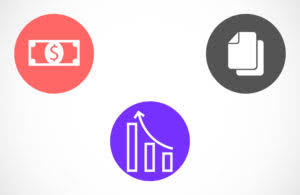
Business owners can review these reports to understand how the business is performing and see its financial standing. After completing your education, you can seek an internship and get on-the-job training to become a bookkeeper. However, it helps to have a two- or four-year degree in accounting, finance or related discipline. A bookkeeper can expect to earn a salary in the range of $30,000-$60,000 a year in the US. However, compensation will widely vary depending on the employer, location, and candidate experience.
Organizational and Time Management Skills
Every transaction, from sales and payments to expenses and deposits, is accurately recorded and organized. This meticulous attention to detail ensures owners have a clean, up‑to‑date ledger, making it easy to track performance and spot trends. Without this discipline, even the best‑run businesses can lose clarity and control over their numbers. Still, the high number of jobs and limited requirements make bookkeeping a strong entry point into the accounting field. While working as a bookkeeper, you can gain experience in tax preparation, auditing, and even financial analysis, which is useful when you decide to Suspense Account advance your career.

What are the legal steps to hire an employee like a bookkeeper?
Bookkeeping is a vital profession involved in maintaining accurate financial records for individuals, businesses, and organizations. There are plenty of opportunities for career advancement in this field. The following subsections focus on continuous learning, certification, and career pathways for bookkeepers. With the help of modern technology and software, bookkeepers can efficiently handle large volumes of transactions in a relatively short period of time. Their work plays an essential role in the overall operation of a business, as they help management make informed financial decisions based on accurate financial data. Bookkeepers may also collaborate with accountants to facilitate compliance with relevant laws and regulations, contributing to the sustainability and success of an organization.
- Bookkeepers record financial transactions, manage accounts, and prepare financial reports for organizations.
- These reports aren’t just numbers, they tell the story of the business and help guide its direction.
- Understanding these needs will guide your search and help you find the right fit.
- These areas define the roles and functions of bookkeeping vs accounting and show why they’re both essential to the business.
- Bookkeepers regularly meet with managers to review financial trends, recurring expenses, and forecasted income.
- Review responsibilities, duties, and salary insights in this job description.
Day-to-Day Work of a Bookkeeper
Pay attention to the job description to identify which jobs are remote bookkeeping jobs and which are in-house. Once you’ve had some bookkeeping training, you’re ready for real-world bookkeeping jobs or experience. As an independent business owner, you’ll have to learn how to do your freelancing taxes too. If you want to become a bookkeeper and also start a bookkeeping business, there are a few things to consider. In this guide, we’ll walk you through the steps needed to become a bookkeeper and start your own bookkeeping business.

How do I start a career in bookkeeping?

Bookkeeping is vital to your business finances, but tasks like tracking sales and logging expenses can steal time you’d rather spend growing your business. And while keeping accurate records helps ensure clearer financial insights and smoother tax seasons, it’s easy for small business owners to fall behind or make errors. The U.S. Bureau of Labor Statistics reports that bookkeeping, accounting and auditing clerks—which includes bookkeepers—earn a median annual salary of $49,210. Hourly rates can range from $20 to $50, while monthly fees can range from $200 to $800, depending on the services provided.
![]()
Courses typically last around six weeks, and require about eight hours of studying per week. Bookkeepers record financial transactions, manage accounts, and prepare financial reports for organizations. Unlike other accounting positions, the bookkeeping profession focuses on recordkeeping rather than analysis. Additionally, there may be other responsibilities based on the unique needs of your business. For example, a bookkeeper may be required to learn a specific accounting software assets = liabilities + equity system or participate in certain meetings.
By maintaining detailed records, bookkeepers provide crucial data that helps in budgeting, financial planning, and decision-making. Their work also supports compliance with financial regulations and prepares the groundwork for more complex accounting tasks, such as audits and tax filings. A bachelor’s degree in a field such as accounting can help you pursue a long-term career in bookkeeping. Degree programs teach foundational what does full charge bookkeeper mean accounting principles, taxation, auditing, financial reporting, and could even prepare you to become a certified public accountant. A bookkeeper records and tracks a company’s financial transactions and creates reports that track business performance.
- Now the owner of Colson Strategies, Lauren’s rockstar team provides accounting and finance services ranging from bookkeeping to CFO.
- You can also download the Keeper app and start chatting with a bookkeeper right away.
- Ongoing education and professional development are vital for bookkeepers to keep up with the ever-changing landscape of accounting software, regulations, and best practices.
- The rise of virtual work has also expanded access to opportunities nationwide.
- A bookkeeper can help create accurate financial statements, making it easier to secure financing or expand into new markets when the time is right.
- This could include how a business tracks client invoices, bills, receipts, or other purchases.
Bookkeepers must know double-entry bookkeeping, debits and credits, and the accounting equation. This foundational knowledge ensures that financial transactions are recorded correctly and that financial statements accurately reflect the company’s financial position. Bookkeepers may also report to a corporate controller or assistant controller when it comes to maintaining legal compliance with their bookkeeping practices. A bookkeeper is responsible for recording and maintaining a company’s daily financial transactions. They also prepare reports for the managers and trial balances to assist the accountants.